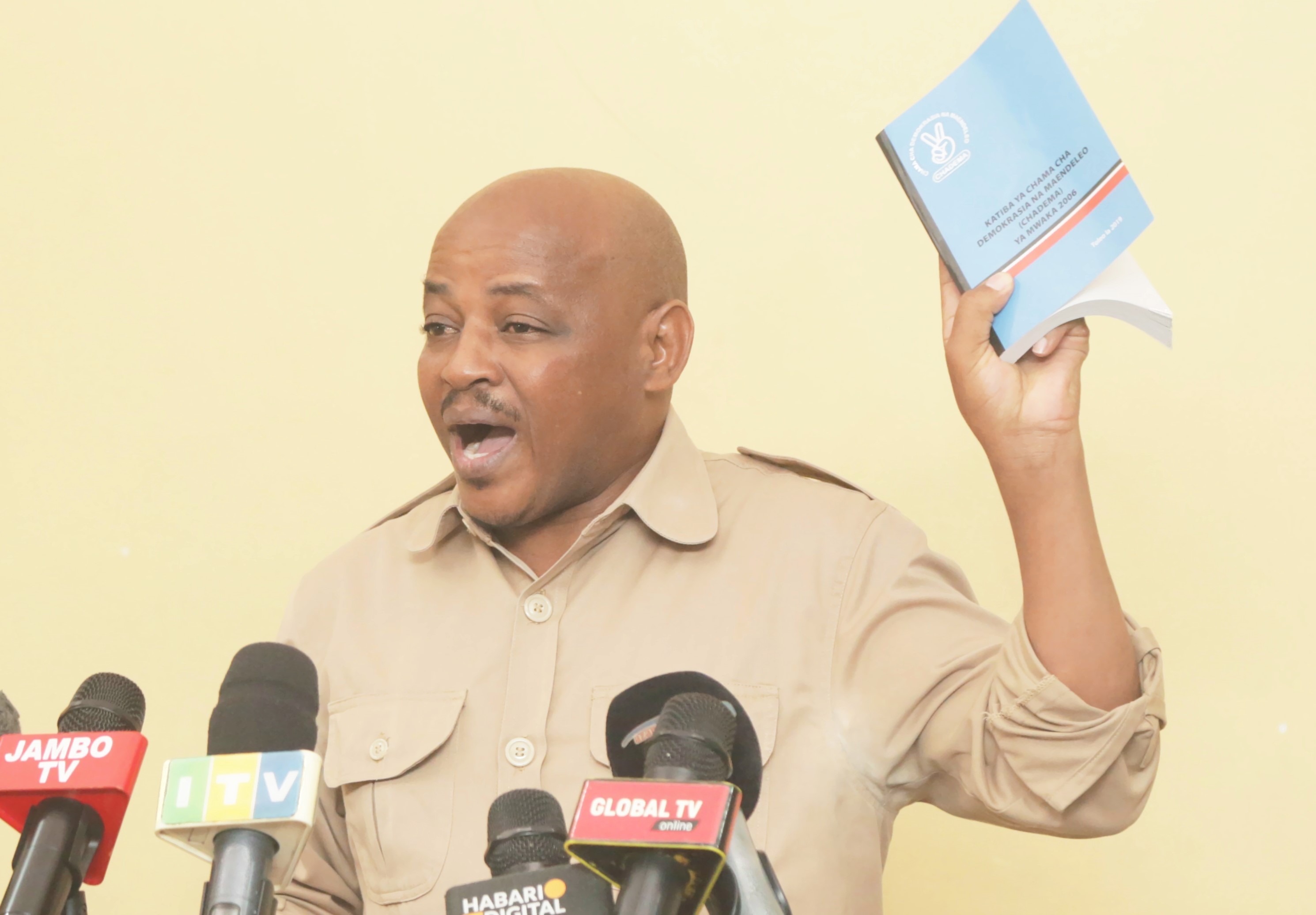How wave of opposition defections could reshape 2025 polls

What you need to know:
- At least a dozen influential politicians have recently left Chadema, citing dissatisfaction with the party’s decision
Dar es Salaam. A growing wave of defections from Chadema is reshaping the political landscape ahead of the 2025 general election.
At least a dozen influential politicians have recently left Chadema, citing dissatisfaction with the party’s decision to boycott the upcoming polls unless meaningful electoral reforms are implemented under its ‘No Reforms, No Election’ campaign.
However, Chadema’s secretary general, Mr John Mnyika, downplayed the defections, saying the party remains strong and committed to its reform agenda.
“Chadema is a resilient institution. It stood firm long before any of these individuals joined, and it will continue to do so. No individual is bigger than the party. Our base remains loyal, and our message resonates with Tanzanians who want genuine reforms,” he said.
One of the most notable defectors is lawyer and activist Peter Madeleka, who joined ACT Wazalendo. He was welcomed by the party’s Vice Chairman (Mainland), Mr Isihaka Mchinjita, who praised him as a fearless defender of human rights.
“I joined ACT Wazalendo because I believe in building a stronger opposition capable of offering hope to Tanzanians,” said Mr Madeleka, who has declared his intention to contest for a parliamentary seat in 2025.
He criticised Chadema’s boycott strategy, arguing that meaningful change can only come from participating in elections.
“The goal of any politician is to take power and implement policy. You can’t do that by staying out of the race,” he said.
Besides ACT Wazalendo, another party gaining traction is Chaumma, which has welcomed several former Chadema figures, including Salum Mwalimu, Benson Kigaila, and Devotha Minja. Also joining Chaumma is Mr John Mrema, Chadema’s former director of Communications and International Relations.
At Chaumma’s National Executive Council meeting on May 19, 2025, Mwalimu was appointed secretary general, Mr Kigaila became deputy secretary general for Mainland Tanzania, and Ms Minja was named Acting deputy chairperson.
The party’s longtime chairman, Mr Hashim Rungwe, described the new additions as a turning point.
“We are no longer just participants; we are contenders,” he told party members.
However, not everyone is convinced about Chaumma’s long-term viability. Political analyst Dr Richard Mbunda of the University of Dar es Salaam warned that the party must develop genuine grassroots support if it hopes to make a lasting impact.
“Leadership reshuffles are one thing, but real political traction comes from public connection and trust,” he said.
According to Dr Mbunda, the defections could play out in two ways. “These moves could inject new energy into ACT Wazalendo and Chaumma. But we must also ask whether an unseen force is driving this momentum. Are these shifts truly ideological or just political opportunism?” he asked.
Dr Revocatus Kabobe of the Open University of Tanzania called Chadema’s boycott campaign both principled and risky.
“It’s a bold stance that raises pressure for reforms, but it opens room for other opposition parties to gain visibility and support. In politics, vacuums are always filled,” he said.
At the State University of Zanzibar, Prof Makame Ali Ussi echoed similar sentiments, warning that opposition fragmentation could benefit the ruling Chama Cha Mapinduzi (CCM) if the new parties fail to coordinate.
“Without a unified front, the opposition risks splitting the vote. That’s what CCM could capitalise on. Still, more choices could energize voters and promote political engagement, depending on how the new entrants perform,” he said.
Meanwhile, Dr Paul Loisulie from the University of Dodoma said the defections reflect Tanzania’s growing political maturity.
“Political parties are not churches. People leave when ideologies or opportunities shift. It’s part of democratic evolution. Now it’s up to the new parties to offer credible and concrete alternatives,” he said.
The bigger question remains whether the divided opposition can mount a serious challenge in the October election.
“Opposition politics in Tanzania has long struggled with unity. What we’re seeing now—leaders abandoning the biggest opposition party and splitting across smaller parties—might weaken the opposition overall unless there’s strategic collaboration,” Dr Loisulie added.
Yet, some believe a multiparty opposition could ultimately deepen democracy.
“People have been calling for more political options. This could be the test to see if alternative voices can genuinely represent voters,” said Prof Ussi.





